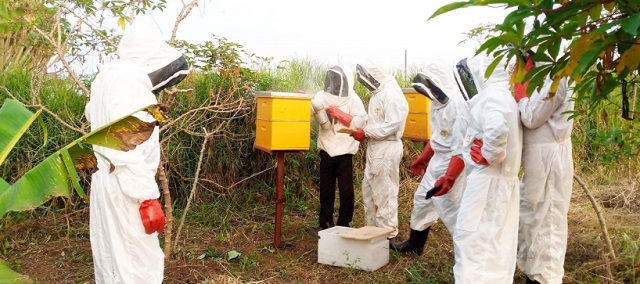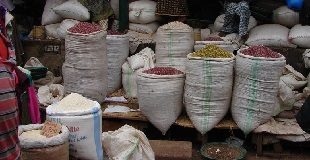
Targets lucrative EU honey market where Uganda has an export quota of 5000tons a year
Kampala, Uganda | JULIUS BUSINGE | Nathan Akanyijuka has been a cattle farmer in Mbarara, South Western Uganda for many years, a venture that has earned him income to meet his family needs.
But, since the beginning of last year, things have not been good. The price for unprocessed milk has been fluctuating, declining after Kenya blocked the entry of Pearl Dairy Limited products on allegations that they do not meet the required standards.
Kenya also alleges that Pearl was importing raw materials into Uganda to repackage/process milk, hence posing unfair competition to the Kenyan processors. That it was also under-pricing and in the process compromising income for Kenyan dairy farmers.
As a result, Akanyijuka, like many other farmers selling unprocessed milk to Pearl have recorded a slump in price per litre from an average of Shs700 to below 400. Leaders of the two governments are yet to find a lasting solution for this conflict.
In the meantime, Pearl Dairy has recruited 200 dairy farmers including Akanyijuka into the value chain of honey production to supplement on their dwindling income to be able to carry-on with their daily lives.
“I was told the project has money…I liked it and allowed to do it,” Akanyijuka says.
Each farmer has been given a minimum of four beehives, and expect to start harvesting in the next two months.
Good quantities of honey are harvested twice in a year depending on the weather and vegetation, according to experts.
According to Micheal Van den Berg, the head of dairy and apiculture development at Pearl Diary, at peak, a farmer will earn about Shs160, 000 from a beehive in a year. Currently, under phase one of the project, a total of 1000 beehives have been installed.
The plan for the next four years, is to have a total of 4,000 farmers/people engaged in this side business, all manning a total of 20, 000 beehives. About 70% of the project beneficiaries will be women and largely youths between the ages of 18-35.
The company has hired a consultant, Ernest Simeoni, from the Kenyan based firm, African Beekeepers Ltd to train farmers and extension workers in apiculture (beekeeping) and related practices.
It is also constructing a honey processing plant in Mbarara, which is 90% complete.
Construction is expected to be completed by end of next month ahead of the first harvest of honey from the apiaries for phase one of the project. Van den Berg, says, they expect the first harvest to yield about seven tons.
Company executives will collect the honey, process it, package it and export it to Europe, where Uganda has a 5,000 ton export permit/quota of honey per year, which is yet to be exploited.
“Our consultant advises that we need to train people in beekeeping and not honey harvesting,” says, Van den Berg.
He adds, the processing plant has a production capacity of 20tons per day. It will be fully automated to employ about 10 people.
“We see a return on it (factory), which is why we are investing in it,” he says.
So far, Van den Berg, says a total of Shs400million has been spent on beehives and their installation. The company has so far spent Shs80million on extension services and put aside an annual budget of $200, 000 to train extension workers and equip them with all the necessary tools of work. For the beginning, 13 able-bodied youth have been recruited to undertake this task.
Enter consultant
Simeoni, the consultant, has 26 years’ experience in this field. He says, the farmer will need education and good quality equipment to benefit from the project.
“We are dealing with new people; people who have never dealt with this,” he says, “I see people are prepared to learn and we are going to coach them to do this.”
The problem, he says, in Uganda and Africa, people do not do beekeeping but instead do honey hunting.
This honey hunting habit, he says, is causing a lot of issues including losing bees because the old people who used to do honey hunting, knew how to do it and yet, the new people doing it today are only interested in making money.
He adds that phase one of the project will involve imparting knowledge into the people and getting them to understand the concept of modern beekeeping.
Simeoni says, quality of equipment and good training are key lessons that Uganda needs to learn from Kenya, where he has been actively involved in the same trade for 26 years. If it succeeds, Pearl’s project will be the first and largest vertically integrated in east and central Africa.
According to Uganda Investment Authority website, government is supporting bee farmers through the National Agricultural Advisory Services programme funding activities and finding a market for products.
Globally, there is high demand for honey for home consumption and pharmaceutical use in making drugs. Pearl Dairy’s processed honey largely targets the international market, according to its executives.
****
 The Independent Uganda: You get the Truth we Pay the Price
The Independent Uganda: You get the Truth we Pay the Price


